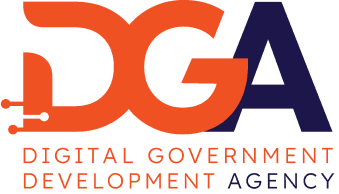
Government Central Service System for Businesses (Biz Portal)
Government Central Service System for Businesses (Biz Portal)
Background
The Constitution of the Kingdom of Thailand, B.E. 2560 (2017), Section 258 B., on Public Administration, stipulates the use of appropriate technology in public administration and the provision of public services for the benefits of government management and to facilitate the public’s access to government services. It also requires the integration of data from all government agencies to create a one-stop system for public administration and citizen services.
The master plan under the National Strategy, covering the period 2018 to 2030, focuses on enhancing public service and government efficiency. The plan aims to modernize public administration, ensuring that the government is appropriately sized, highly competent, and responsive to the needs of the public. It supports the goal of Thailand 4.0, where the government can adapt to changes and sustain long-term development, guided by the principle “A government for the people, by the people, and for the public good.”
In sub-plan 1, the development of public services emphasizes providing government services that are quick, transparent, and convenient for the public, aligning with the concept of “government for the people, by the people.” This approach promotes the integration of digital technology and innovations in public service delivery.
In the fiscal year 2016, the Office Public Sector Development Commission (OPDC),
in collaboration with the Digital Government Development Agency (Public Organization) (DGA) and relevant agencies, developed the electronic one-stop government service system (Biz Portal). The system is designed to provide services related to issuing certificates, licenses, and various documents to business entrepreneurs. It aims to facilitate business entrepreneurs in receiving government approvals and permits by allowing them to fill out forms and submit supporting documents via computer from anywhere, at any time, without the necessity to visit government offices in person.
Since the fiscal year 2016, the Office of the Public Sector Development Commission (OPDC), in collaboration with DGA and related agencies, has developed the Biz Portal, an integrated electronic government service system. This system provides a one-stop electronic service for issuing certificates, licenses, and official documents with reliability and security. It integrates government agencies’ databases and electronic service systems (e-Service) to facilitate citizens and businesses in conducting transactions seamlessly. Users can apply once, using a single form and a single set of documents, and track all licenses at bizportal.go.th. Moreover, users can access and utilize the system via computers, tablets, and mobile phones, making it more convenient for individuals and businesses by reducing paperwork and the need to travel to government offices. In addition, users can track the status of their applications independently. Since the fiscal year 2020, the system’s capabilities and services have been enhanced to become fully digital, covering the entire process—from application submission and fee payment to the issuance of electronic licenses. This includes both existing licenses available through the Biz Portal system and newly introduced services. Currently, the Biz Portal system provides services for issuing certificates, licenses, and various official documents, covering a total of 94 licenses across 25 business categories in Bangkok and 18 licenses across 10 business categories in 76 provinces nationwide. The system supports various licensing processes, including new applications, renewals, modifications, and cancellations. Additionally, during the fiscal years 2020–2021, 36 licenses were upgraded to be fully digital (Fully Digital), enhancing service efficiency and accessibility.
Definitions:
- Entrepreneur – individuals or legal entities required to receive certificates, licenses, or government services for business operations.
- Service – the process of issuing certificates, licenses, and documents, or performing other necessary procedures for entrepreneurs. This process includes receiving applications (Request) from entrepreneurs, verifying the accuracy and completeness of applications and supporting documents, reviewing and approving licenses, collecting fees/ service charges, and issuing and delivering certificates, licenses, or documents to entrepreneurs.
- Service Producer – agencies responsible for processing and issuing certificates, licenses, documents, or conducting other necessary procedures for entrepreneurs.
Benefits for Agencies and Entrepreneurs
For Entrepreneurs:
- Convenient access to government services anytime, anywhere through digital channels.
- Ability to track application progress and receive status notifications.
For Service Providers (Government Agencies):
- Expanded service channels for entrepreneurs through a digital system, improving accessibility and efficiency.
- Agencies without digital service systems can use Biz Portal to facilitate service delivery, covering key processes such as application approval, fee collection, and license issuance.
Learning Materials
Technical Overview (System Flow)
The Biz Portal central government service platform for businesses operates through multiple microservices managed by the Digital Government Development Agency (DGA), including:
- Digital Identity System (Digital ID)
- Supports identity proofing and authentication for individuals and business entities.
- Biz Portal System
- Facilitates entrepreneurs’ application for certificates, licenses, and other official documents.
- Allows users to track the progress of their applications.
- Service Backend System
- Supports government agencies in processing service requests.
- Covers key steps such as:
- Verifying the completeness and accuracy of applications.
- Reviewing and approving licenses.
- Processing payments and fees.
- Issuing and delivering certificates, licenses, and documents.
- Government Data Exchange (GDX) System
- Enables data integration from relevant agencies to support approval and licensing decisions.
- Examples of linked data sources:
- Department of Provincial Administration (DOPA): Population registry data.
- Department of Business Development (DBD): Business registration data.
System Flow Details
The Biz Portal system integrates various subsystems to provide seamless services to users. The process works as follows:
- User Authentication via Digital ID:
- The entrepreneur logs in using the Digital ID system.
- If the user does not have an account, they must register first.
- For individuals: Identity proofing requires personal details such as full name, national ID number, date of birth, and the laser code from the back of the national ID card.
- For legal entities: Account registration must be done through the Department of Business Development (DBD).
- Successful Authentication & User Profile Transfer:
- Once identity proofing and authentication are successful, the Digital ID system redirects the user to the Biz Portal dashboard.
- The user’s profile data is automatically sent to the Biz Portal system.
- Application Submission via Biz Portal:
- The entrepreneur selects the required license/service.
- They fill out the application form and upload the necessary supporting documents.
- After confirming the submission, the Biz Portal forwards the application to the Service Backend system.
- Processing by the Service Backend System:
- The relevant government agency receives the application and begins processing.
- If additional data verification is needed, the system retrieves relevant information via the Government Data Exchange (GDX).
- Examples of requested data include:
- Citizen registration data (from the Department of Provincial Administration – DOPA)
- Business registration data (from the Department of Business Development – DBD)
Approval Process via Service Backend
Once an application is submitted, relevant officials access the Service Backend to review and approve the request. The process consists of the following steps:
- Application and Document Verification
- Officials review the submitted application and supporting documents.
- Record the verification results regarding completeness and accuracy.
- Notify the entrepreneur of the verification outcome via Biz Portal.
- Approval Process
- Officials examine the application details and supporting documents.
- If required, they compile the necessary information for submission to an approving authority (e.g., a review committee).
- Record the approval decision.
- Notify the entrepreneur of the decision via Biz Portal.
- Fee Payment Process
- Officials record the required service fee.
- The system notifies the entrepreneur of the fee via Biz Portal.
- The entrepreneur makes the payment using the designated channels.
- The entrepreneur submits proof of payment via Biz Portal.
- Officials verify and confirm the payment.
- Issuance and Delivery of Certificates/Licenses
- Officials generate the electronic certificate or license (e-Document) and submit it for approval.
- The authorized person reviews the document for accuracy and completeness.
- The document is digitally signed using an electronic signature (e-Signature).
- The system notifies the entrepreneur that the license or certificate has been issued via Biz Portal.
Related Laws
For Service Providers
Digitalization of Public Administration and Service Delivery Act, B.E. 2562 (2019), Section 4:
“To ensure that the administration of government affairs and the provision of public services are convenient, quick, effective, and responsive to the needs of the public, government agencies, it is required to provide administration and public services in digital formats and channels. This includes the management and integration of government data and operations, ensuring alignment, secure connectivity, and governance. The goal is to develop effectiveness, facilitate public access to services, promote transparency in the release of government information, and encourage public participation from all sectors.”
Digital Government Development Agency (Public Organization) (DGA)
Related Laws
- Digitalization of Public Administration and Service Delivery Act, B.E. 2562 (2019), Section 10(5)
- “Support the connection of digital services of government agencies to create integrated public services as determined by the Digital Government Development Committee to facilitate citizens.”
- Royal Decree on the Establishment of the Digital Government Development Agency (Public Organization), B.E. 2561 (2018), Section 8(5)
- “Develop integrated digital public services at a one-stop point where citizens can access services conveniently, quickly, and securely.”
- Royal Decree on the Principles and Methods of Good Governance (No. 2), B.E. 2562, Section 10
- “In the initial phase, DGA is required to establish a central digital platform for government agencies to use in providing services to the public and coordinate with each other within ninety (90) days from the enactment of this Royal Decree.”
System Security Measures
The Government Central Service System for Businesses (Biz Portal) is hosted on a cloud platform provided and managed by DGA. The Biz Portal system ensures a service level agreement (SLA) of at least 99.5% uptime and is equipped with secure data protection measures against cyber threats. It maintains high-security standards and is certified under ISO/IEC 27001:2013 for Information Security Management Systems (ISMS).
In addition, all related applications and systems are operated in compliance with the Computer Crime Act (No. 2), B.E. 2560 (2017), and the Cybersecurity Act, B.E. 2562 (2019)
The Biz Portal has been developed with the following security considerations:
– The development of the applications, systems and platforms of the NESDB is implemented under the ISO/IEC 9001 standard.
– Before launching the applications, systems, and platforms for actual service,
the applications, systems and platforms must pass comprehensive testing in features (Functional Test) and other aspects (Non-Functional Test) such as Performance Test and Security Test. The test results must confirm that the system operates seamlessly, maintains high availability, and presents minimal security risks before deployment.
DGA conducts security testing of applications and platforms (Security Test) using at least two methods as follows:
- Static Application Security Testing (SAST) This method involves reviewing the source code of the developed applications and platforms to identify potential programming vulnerabilities that could be exploited by attackers or malicious parties.
- Vulnerability Assessment (VA) This method involves assessing the installed applications and platforms as a whole to determine if they have any security risks arising from improper settings or insufficiently secure infrastructure.
Contact for Service Requests
- Entrepreneurs interested in using the Biz Portal can access the service via the website https://bizportal.go.th.
- Government agencies interested in using the service can contact the DGA Contact Center at Tel: 02-612-6060 or by email at [email protected].
More Details:
- Service Presentation Documents
- Service Details Video
-
Service Request Form
